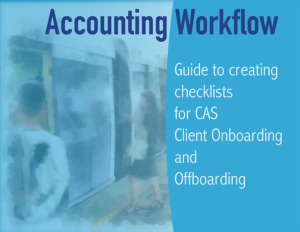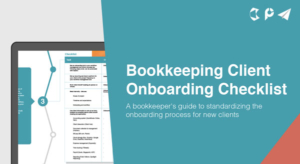Chances are, you’ve heard the phrase “advisory services” being tossed around lately. A quick google search of the term might yield many confusing, often contradictory definitions. Fortunately, advisory services are fairly simple at their core. There’s a high probability that your firm is already providing some of these services for your accounting clients. Now, it’s time to give those services a name, a price, and operation guidelines so that you can profit off your experience and expertise.
Let’s start at the beginning. So, what are accounting advisory services, what makes them so valuable, and why are you uniquely qualified to offer them?
Defining advisory services
Though often confused with compliance, advisory services are comprised of the services provided by your firm which go beyond traditional accounting and bookkeeping. So what’s the gist of advisory services? Well, your clients just want extra help to guarantee they are making the best financial and operational decisions for their small business, AND they want to give that work to a firm they already trust to handle their bookkeeping and accounting needs. Let’s face it — you know what you’re doing. Your clients know that and, even if they haven’t said it out loud yet, they might be looking for guidance from someone like you. Learning to label, monetize, and upsell these sought-after services can be profitable for both you and your clients.
Types of advisory services
Because the definition of advisory services can be vague and fluid, many types of services can find a home under this umbrella. Specific examples might include tax planning and strategy, budgeting and goal tracking, and business performance reviews. Often, the roles you fulfill as an advisor will fall under one of the following categories: financial, process, app, compliance, and succession planning. So many small businesses eventually fail, and your clients understandably feel the weight of those odds. They’re looking for experienced industry professionals to guide them through all the little things that can make or break their small business.
Implementing advisory services
When implementing client advisory services, it’s important that YOU have a full grasp of the value of those services before offering them to your clients. Remember, your experience and accounting knowledge is valuable. Find a way to brand your services that centers on your client and their goals. If you are working with an existing client, you’ll have the advantage of an established relationship and knowledge of their business. Business clients like putting their eggs in one basket when it comes to financial services. The more needs your firm can fulfill for your clients, the better, and the more irreplaceable your business will be.
It’s important to be compensated fairly and appreciated for the services you provide, which can often include things like informal coaching and consultancy. If you and your firm are considering offering official advisory services, start by taking a good look at the work you already do, your specific areas of expertise, and the needs of your clients. Find the gaps that need to be filled; consider your clients’ pain points. Sometimes a guiding hand and reassurance from a trusted advisor are what small businesses are really after, and there’s no reason that can’t be YOU.











